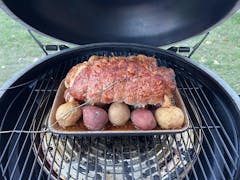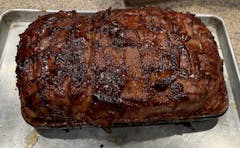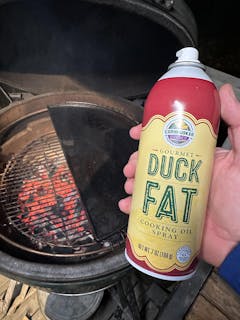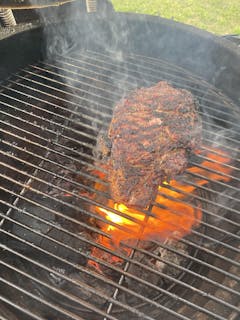How to choose the best Cookware for your needs - A Buying Guide
Welcome to our comprehensive guide on how to choose the best cookware for your needs. Whether you're an experienced chef or just starting out in the kitchen, having the right cookware set is essential to create delicious and well-prepared meals. We will walk you through the various factors to consider when selecting cookware, including the different materials, essential cookware pieces, and important considerations. By the end of this guide, you'll be equipped with the knowledge to make an informed decision and invest in the best cookware set for your kitchen.
Understanding Cookware Sets
Essential Cookware Pieces: 5 Must-Have Items
When building your cookware collection, there are five essential pieces that should be part of your arsenal:
- A fry pan: Whether you're searing meats or sautéing vegetables, a good quality fry pan is a must. Look for one with a nonstick coating for easy food release and quick cleanup.
- A stock pot: Perfect for making soups, stocks, or boiling pasta, a stock pot with a large capacity is a versatile piece to have in your kitchen.
- A Dutch oven: This heavy-duty pot is great for slow cooking, braising, and making stews. Choose one made from durable materials like cast iron for even heat distribution.
- A saucepan: Ideal for heating sauces, boiling water, or making small portions of dishes, a saucepan with a tight-fitting lid is an essential item.
- A skillet: Whether you're frying eggs or sautéing vegetables, a skillet is a versatile piece that can handle a variety of cooking tasks.
Choosing the Best Cookware Material
Stainless Steel Cookware
Stainless steel cookware is a popular choice due to its durability and resistance to rust and corrosion. It offers excellent heat distribution, making it suitable for a wide range of cooking techniques. Look for stainless steel cookware with an aluminum or copper core for even heat conduction.
Aluminum Cookware
Aluminum cookware is lightweight, affordable, and offers excellent heat conductivity. It heats up quickly and evenly, reducing hot spots that can lead to uneven cooking. However, it can react with acidic or alkaline foods, so it's best to choose aluminum cookware with a non-reactive coating.
Nonstick Cookware
Nonstick cookware is coated with a layer of polytetrafluoroethylene (PTFE), which prevents food from sticking to the surface. This makes it ideal for cooking delicate foods like eggs or pancakes with minimal to no added fats. However, be cautious when using nonstick cookware on high heat, as overheating can damage the coating.
Copper Cookware
Copper cookware is known for its excellent heat conductivity, allowing for precise temperature control. It heats up quickly and evenly, reducing the risk of scorching or burning food. However, pure copper cookware requires regular maintenance to prevent tarnishing, and it can be more expensive compared to other materials.
Cast Iron Cookware
Cast iron cookware is beloved for its superior heat retention and even heat distribution. It's incredibly versatile, suitable for searing, frying, baking, and even slow cooking. Cast iron requires regular seasoning to maintain its nonstick properties and prevent rusting. While it is heavier compared to other materials, cast iron is incredibly durable and can be passed down through generations.
Carbon Steel Cookware
Carbon steel cookware is known for its durability and heat distribution properties. Made from an alloy of iron and carbon, this type of cookware is valued for its ability to withstand high heat, making it perfect for tasks such as searing and stir-frying. Carbon steel pans quickly respond to changes in temperature, allowing for precise control while cooking. Additionally, they develop a natural nonstick patina over time, enhancing their performance. Although they require a bit of maintenance to prevent rusting, with proper care, carbon steel cookware can last a lifetime.
Clay Cookware
Clay cookware has been used for centuries throughout various cultures around the world. This type of cookware is made from natural clay materials and offers several benefits. Clay pots and pans have excellent heat retention properties, allowing for even cooking and preventing hot spots. They also distribute heat slowly and evenly, resulting in flavorful and well-cooked meals. Additionally, clay cookware is known for its ability to retain moisture, making it an ideal choice for braising and slow cooking. Furthermore, using clay cookware adds a unique earthy flavor to dishes. Its durability and non-toxic properties make it a favorite among home cooks and professional chefs alike.
Considerations for Choosing Cookware
Budget
Before diving into the world of cookware, it's important to establish a budget. Cookware sets come in a wide range of prices, so determining how much you're willing to invest will help narrow down your options. Remember, while quality often comes with a higher price tag, it's important to weigh the cost against the long-term value.
Types of Meals You Cook Often
Consider the types of meals you tend to cook most frequently. If you're someone who loves whipping up stir-fries or sautéed vegetables, a good quality fry pan or skillet is essential. If you often make soups, stews, or sauces, invest in a stock pot or Dutch oven for optimal results. Knowing your cooking preferences will guide you in selecting the most suitable cookware pieces for your needs.
Material
The material of your cookware will impact its performance and durability. Consider the pros and cons of each material we discussed earlier and choose one that aligns with your cooking style and preferences.
Durability
Look for cookware that is built to last. Pay attention to the construction, quality of materials, and customer reviews to gauge the durability of the cookware you're considering. Investing in durable cookware will save you money in the long run, as you won't have to replace it as frequently.
Quantity
Consider how many people you usually cook for and choose a cookware set that includes the necessary pieces to accommodate your needs. It's better to have a few quality pieces that are frequently used rather than a large set with items that rarely see the light of day.
Types of Pots and Pans
Take into account the specific pots and pans you require. If you have a particular dish or cooking technique that you frequently use, ensure the cookware set includes the necessary pieces to make your favorite meals with ease.
Types of Cooktop
Consider the type of cooktop you have, as it may influence your choice of cookware. For example, if you have an induction cooktop, you need cookware made from magnetic materials, such as stainless steel or cast iron, for it to work effectively.
Design
Although not essential to cooking performance, the design and aesthetics of your cookware can enhance your kitchen's visual appeal. Choose a style that complements your kitchen decor and makes you feel inspired to cook.
Special Features
Some cookware sets come with special features such as stay-cool handles, removable lids, or stackable design for easy storage. Identify any special features that are important to you and look for cookware sets that offer them.
Final Thoughts
Choosing the best cookware for your needs is a personal decision that depends on various factors. Consider your cooking style, budget, and specific requirements when selecting a cookware set. Investing in a quality set will not only enhance your cooking experience but also last you for years to come.
Curated Experts Can Help
If you're still unsure about which cookware set is best for you, our curated experts can assist you in making an informed decision. Contact our team of knowledgeable professionals who can provide personalized recommendations based on your needs and preferences.





































